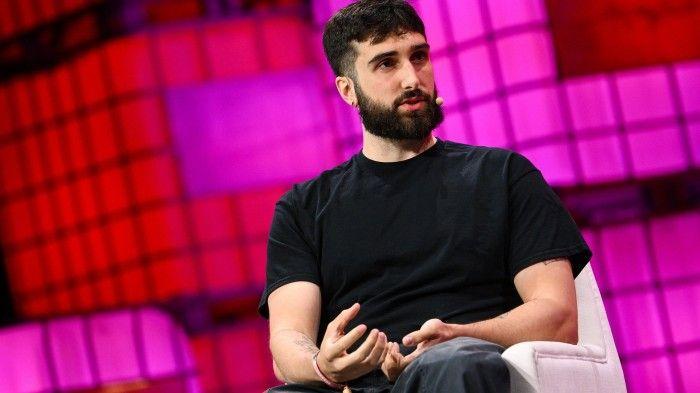Cohere Shifts Focus to Customized AI Models for Enterprise Clients
3 Sources
3 Sources
[1]
AI startup Cohere to prioritize customized over larger models in enterprise push
Canadian AI startup Cohere, last valued at $5.5 billion, will focus on building tailored models for enterprise users over larger foundation models, the company told Reuters. The evolvement of its strategy, laid out in a company letter to its investors on Thursday, comes as many companies are still trying to figure out how to incorporate large language models into their daily work two years since ChatGPT burst onto the scene. "What we're hearing from customers is that they don't just need bigger models to be good at everything. They need models that are actually built for their specific use cases," Nick Frosst, co-founder of Cohere, said in an interview with Reuters. Cohere, seen as a competitor to AI labs including OpenAI and Anthropic, says it will continue to develop foundation models, but will focus on other training techniques to improve models, instead of increasing model sizes. While selling Application Programming Interface (API) to its models will remain a small part of Cohere's offering, the focus is on customized model deployment. The race to build bigger and better models has fueled an investment boom from startups to big tech. OpenAI, Anthropic and xAI have raised billions to fund the capital-intensive development of frontier AI models. Headquartered in Toronto and San Francisco, Cohere has raised over $900 million from investors including Nvidia, Cisco, and Innovia Capital. Cohere has pitched itself as an enterprise focus AI company independent of cloud providers. It has been working directly with customers such as Oracle and Fujisu to tailor models for specific needs. Cohere's new focus also comes as the industry that had seen breakthroughs by scaling computational power and model size, is seeing diminishing returns from bigger models. AI labs are facing delays in training the new generation of large language models. Ilya Sutskever, co-founder of AI labs Safe Superintelligence (SSI) and OpenAI, told Reuters recently that results from scaling up pre-training have plateaued. Frosst said that simply increasing model size doesn't always yield better results. The focus on customization could allow Cohere to be more capital-efficient, reducing the need for computational power. The company is not pursuing artificial general intelligence (AGI) like OpenAI. "We're going to work with an enterprise to figure out how we can make the model perfect at their use case, tailor it to that specific needs and get to production, not bank on the AGI future is coming next year," Frosst said. (Reporting by Krystal Hu in New York;Editing by Elaine Hardcastle)
[2]
AI startup Cohere to prioritize customized over larger models in enterprise push
Cohere, seen as a competitor to AI labs including OpenAI and Anthropic, says it will continue to develop foundation models, but will focus on other training techniques to improve models, instead of increasing model sizes. Canadian AI startup Cohere, last valued at $5.5 billion, will focus on building tailored models for enterprise users over larger foundation models, the company told Reuters. The evolvement of its strategy, laid out in a company letter to its investors on Thursday, comes as many companies are still trying to figure out how to incorporate large language models into their daily work two years since ChatGPT burst onto the scene. "What we're hearing from customers is that they don't just need bigger models to be good at everything. They need models that are actually built for their specific use cases," Nick Frosst, cofounder of Cohere, said in an interview with Reuters. Cohere, seen as a competitor to AI labs including OpenAI and Anthropic, says it will continue to develop foundation models, but will focus on other training techniques to improve models, instead of increasing model sizes. While selling Application Programming Interface (API) to its models will remain a small part of Cohere's offering, the focus is on customized model deployment. The race to build bigger and better models has fueled an investment boom from startups to big tech. OpenAI, Anthropic and xAI have raised billions to fund the capital-intensive development of frontier AI models. Headquartered in Toronto and San Francisco, Cohere has raised over $900 million from investors including Nvidia, Cisco, and Innovia Capital. Cohere has pitched itself as an enterprise focus AI company independent of cloud providers. It has been working directly with customers such as Oracle and Fujisu to tailor models for specific needs. Cohere's new focus also comes as the industry that had seen breakthroughs by scaling computational power and model size, is seeing diminishing returns from bigger models. AI labs are facing delays in training the new generation of large language models. Ilya Sutskever, cofounder of AI labs Safe Superintelligence (SSI) and OpenAI, told Reuters recently that results from scaling up pre-training have plateaued. Frosst said that simply increasing model size doesn't always yield better results. The focus on customization could allow Cohere to be more capital-efficient, reducing the need for computational power. The company is not pursuing artificial general intelligence (AGI) like OpenAI. "We're going to work with an enterprise to figure out how we can make the model perfect at their use case, tailor it to that specific needs and get to production, not bank on the AGI future is coming next year," Frosst said.
[3]
AI startup Cohere to prioritize customized over larger models in enterprise push
Dec 5 - Canadian AI startup Cohere, last valued at $5.5 billion, will focus on building tailored models for enterprise users over larger foundation models, the company told Reuters. The evolvement of its strategy, laid out in a company letter to its investors on Thursday, comes as many companies are still trying to figure out how to incorporate large language models into their daily work two years since ChatGPT burst onto the scene. "What we're hearing from customers is that they don't just need bigger models to be good at everything. They need models that are actually built for their specific use cases," Nick Frosst, co-founder of Cohere, said in an interview with Reuters. Cohere, seen as a competitor to AI labs including OpenAI and Anthropic, says it will continue to develop foundation models, but will focus on other training techniques to improve models, instead of increasing model sizes. While selling Application Programming Interface (API) to its models will remain a small part of Cohere's offering, the focus is on customized model deployment. The race to build bigger and better models has fueled an investment boom from startups to big tech. OpenAI, Anthropic and xAI have raised billions to fund the capital-intensive development of frontier AI models. Headquartered in Toronto and San Francisco, Cohere has raised over $900 million from investors including Nvidia, Cisco, and Innovia Capital. Cohere has pitched itself as an enterprise focus AI company independent of cloud providers. It has been working directly with customers such as Oracle and Fujisu to tailor models for specific needs. Cohere's new focus also comes as the industry that had seen breakthroughs by scaling computational power and model size, is seeing diminishing returns from bigger models. AI labs are facing delays in training the new generation of large language models. Ilya Sutskever, co-founder of AI labs Safe Superintelligence (SSI) and OpenAI, told recently that results from scaling up pre-training have plateaued. Frosst said that simply increasing model size doesn't always yield better results. The focus on customization could allow Cohere to be more capital-efficient, reducing the need for computational power. The company is not pursuing artificial general intelligence (AGI) like OpenAI. "We're going to work with an enterprise to figure out how we can make the model perfect at their use case, tailor it to that specific needs and get to production, not bank on the AGI future is coming next year," Frosst said. Reporting by Krystal Hu in New York;Editing by Elaine Hardcastle Our Standards: The Thomson Reuters Trust Principles., opens new tab Suggested Topics:Artificial IntelligenceArtificial Intelligence Krystal Hu Thomson Reuters Krystal reports on venture capital and startups for Reuters. She covers Silicon Valley and beyond through the lens of money and characters, with a focus on growth-stage startups, tech investments and AI. She has previously covered M&A for Reuters, breaking stories on Trump's SPAC and Elon Musk's Twitter financing. Previously, she reported on Amazon for Yahoo Finance, and her investigation of the company's retail practice was cited by lawmakers in Congress. Krystal started a career in journalism by writing about tech and politics in China. She has a master's degree from New York University, and enjoys a scoop of Matcha ice cream as much as getting a scoop at work.
Share
Share
Copy Link
Canadian AI startup Cohere announces a strategic shift towards developing tailored AI models for enterprise users, moving away from the race to build larger foundation models.

Cohere's Strategic Shift in AI Development
Canadian AI startup Cohere, valued at $5.5 billion, has announced a significant shift in its strategy, focusing on building tailored AI models for enterprise users rather than pursuing larger foundation models. This decision, communicated to investors on Thursday, comes as businesses continue to grapple with integrating large language models into their operations two years after ChatGPT's debut
1
.Responding to Customer Needs
Nick Frosst, co-founder of Cohere, explained the rationale behind this strategic pivot: "What we're hearing from customers is that they don't just need bigger models to be good at everything. They need models that are actually built for their specific use cases"
2
. This approach aims to address the unique requirements of enterprise clients more effectively.Cohere's Competitive Position
Cohere, seen as a competitor to AI labs like OpenAI and Anthropic, will continue developing foundation models. However, the company plans to focus on alternative training techniques to enhance model performance without necessarily increasing their size. While API sales will remain part of Cohere's offerings, the primary focus will shift to customized model deployment
3
.Industry Context and Investment Landscape
The AI industry has witnessed a significant investment boom, with companies like OpenAI, Anthropic, and xAI raising billions for developing frontier AI models. Cohere, headquartered in Toronto and San Francisco, has secured over $900 million from investors including Nvidia, Cisco, and Innovia Capital
1
.Customization and Capital Efficiency
Cohere's new strategy aligns with emerging industry trends that suggest diminishing returns from larger models. Ilya Sutskever, co-founder of AI labs Safe Superintelligence (SSI) and OpenAI, recently noted that results from scaling up pre-training have plateaued
2
. Frosst argues that focusing on customization could enhance capital efficiency by reducing computational power requirements.Related Stories
Enterprise-Focused Approach
Cohere has positioned itself as an enterprise-focused AI company independent of cloud providers. The company has been collaborating directly with clients such as Oracle and Fujitsu to develop models tailored to their specific needs
3
. This approach contrasts with the pursuit of artificial general intelligence (AGI) by companies like OpenAI.Future Outlook
Frosst emphasized Cohere's commitment to practical, client-focused solutions: "We're going to work with an enterprise to figure out how we can make the model perfect at their use case, tailor it to that specific needs and get to production, not bank on the AGI future is coming next year"
1
. This strategy positions Cohere uniquely in the competitive AI landscape, focusing on immediate, tangible benefits for enterprise clients rather than speculative future technologies.References
Summarized by
Navi
Related Stories
Recent Highlights
1
ByteDance's Seedance 2.0 AI video generator triggers copyright infringement battle with Hollywood
Policy and Regulation

2
Demis Hassabis predicts AGI in 5-8 years, sees new golden era transforming medicine and science
Technology

3
Nvidia and Meta forge massive chip deal as computing power demands reshape AI infrastructure
Technology








